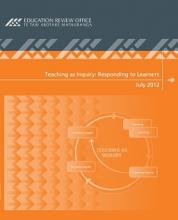Guidance and Counselling in Schools: Survey Findings
This report presents the findings of three online surveys about the current provision of guidance and counselling in schools with students in Years 9 to 13. This is the first phase of work being undertaken by ERO as part of the Prime Minister’s Youth Mental Health Project.



